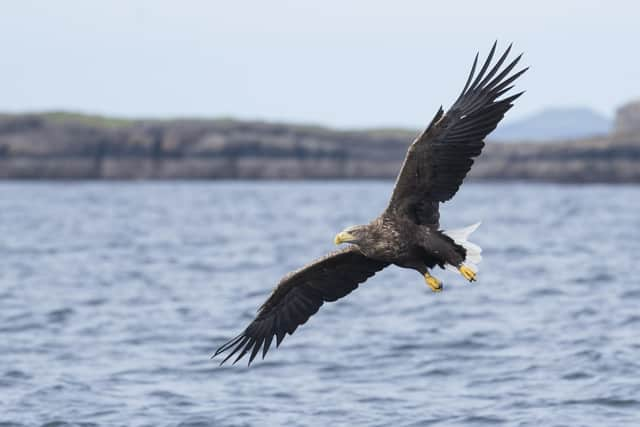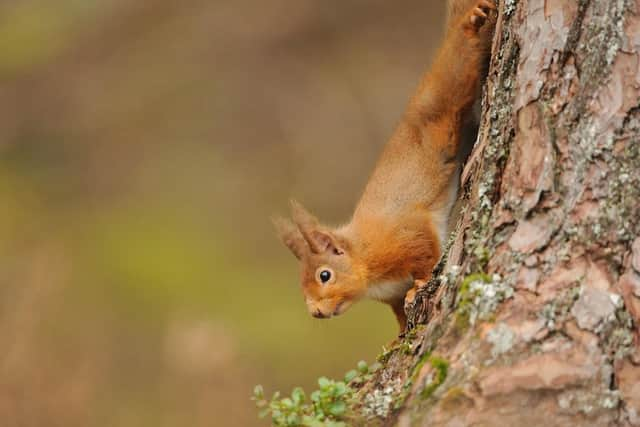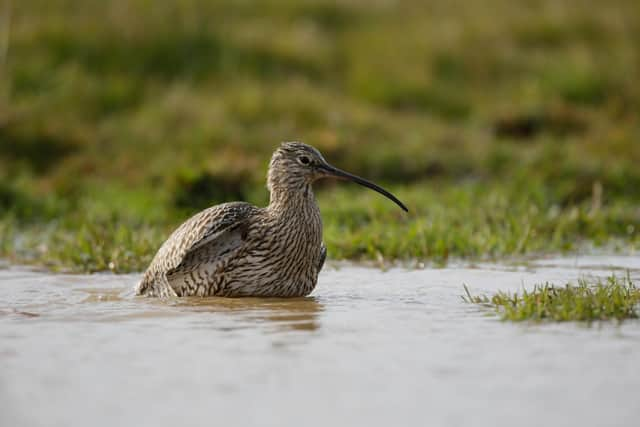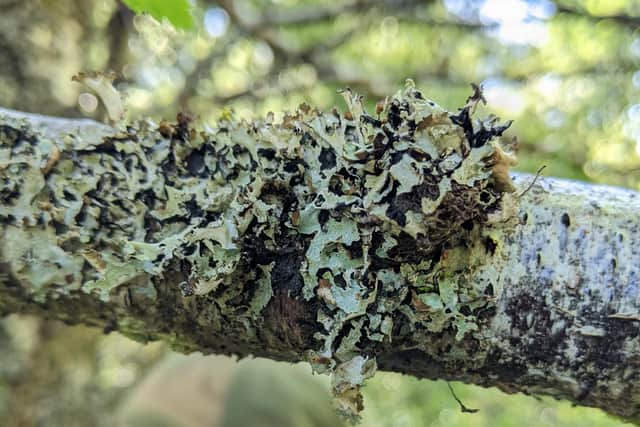State of Nature 2023: New report puts ongoing loss of Scotland’s species into stark focus
However, researchers have warned that the threat of extinction among some groups, such as vertebrates, is much higher at more than one in three.
Meanwhile, numbers of 11 of Scotland’s internationally import seabirds have halved in under 40 years, with an overall drop of 49 per cent since 1986.
Advertisement
Hide AdAdvertisement
Hide AdArctic skua and kittiwake colonies are of particular concern, with dramatic crashes in recent years.
Even more worrying, the picture is likely much worse since the results come from counts prior to the current outbreak of deadly avian flu.
The grim figures are presented in the fourth State of Nature report for Scotland, which assesses how the country’s flora and fauna are faring.
The latest publication is based on the most recent data available, collated by more than 50 nature and conservation organisations, and updates the 2019 edition.
Findings show the average abundance of species in the country has fallen by 15 per cent in the past three decades, with much steeper declines for some groups.


Although some species have seen increases in numbers or distribution, in the past decade alone 43 per cent of populations have shrunk.
Swifts, curlews and lapwings have declined in abundance by more than 60 per cent since 1994, while kestrels have dropped by more than 70 per cent.
Some moth populations, including rosy minor, satyr pug, and grey mountain carpet, have plummeted by more than 90 per cent.
Advertisement
Hide AdAdvertisement
Hide AdStatistics show there has been a 47 per cent reduction in the distribution of flowering plant species in the past 50 years and a 62 per cent decline in bryophytes such as mosses, liverworts and hornworts.


Lichens have been even more severely affected, with a 57 per cent drop since 1970.
Researchers involved in preparing the report have warned that while many of the species in decline are not well-known, they form a vital part of wider environmental health and .
“Species are the building blocks of ecosystems,” said Paul Walton, head of species and habitats for RSPB Scotland.
“Every time we allow a species to go into decline, or to be lost from our country, we progressively undermine the health and functions our ecosystems.


“This is a fundamental problem for the living world, including us.
“Ecosystems provide food, water, air, they underpin the economy and give us health and well-being.
“The State of Nature report shows that not only is Scotland one of the most nature-depleted countries in the world due to historic losses, but that we are still losing nature now.”
Advertisement
Hide AdAdvertisement
Hide AdAccording to the latest ecosystem science from the United Nations, biodiversity is being lost worldwide at a faster rate today than ever before in human history.
And Scotland is no exception. The country does not stand up well in the world rankings for the intactness of its nature, with a score of 45 per cent – similar to the rest of the UK but far lower than other European countries.
It is placed 28th from the bottom out of more than 240 nations – showing the scale of damage to biodiversity caused by human activities.


The draft Scottish Biodiversity Strategy to 2045 states that the “evidence base points consistently to a natural environment that has been heavily degraded, with continued declines across much of our land and seascapes”.
Experts blame centuries of habitat loss due to the spread of urbanisation and development, over-fishing, intensification of farming, invasive species and wildlife persecution for the losses, with climate change also a factor.
They say the declines signal deep issues that must be recognised and tackled.
Mr Walton added: “The findings should be a further wake-up call that, despite extraordinary efforts across our society to restore ecosystems, save species and move towards nature-friendly land and sea use, there's much more we need to do to halt and reverse the declines.
“Thankfully there are straightforward solutions and plenty of opportunities for the Scottish Parliament to make a difference in the coming months.
Advertisement
Hide AdAdvertisement
Hide Ad“Our nature is declining, but Scotland still has incredible natural treasures, deeply embedded in our culture, that we must urgently conserve and restore.
“We must take these opportunities before it's too late.”
Professor Colin Galbraith, chair of NatureScot, said: “Scotland is rich with passion, endeavour and concern for our natural world and, as we work tirelessly to tackle the nature-climate emergency, it is clear that ambition for landscape-scale, collaborative conservation efforts has never been so vital.
“The State of Nature report is evidence that Scotland's nature is in crisis, but it also inspires us with what can be achieved by farmers, foresters, communities, charities and scientists when we all take the urgent action needed to protect and restore our ecosystems and species before it is too late.”
Scotland’s Biodiversity Strategy sets out the goal to halt biodiversity loss by 2030 and reverse declines by 2045.
The first five-year delivery plan to implement the strategy, along with proposals for new legally binding nature restoration targets, is currently open for consultation.
Commenting on the State of Nature report, biodiversity minister and Scottish Greens MSP Lorna Slater said the Scottish Government was “already taking urgent action” to reverse nature-loss and restore the environment through schemes such as the £65 million Nature Restoration Fund and £250 million Peatland Action programme.
“Restoring Scotland’s nature creates so many great opportunities for everyone,” she said.
“Communities, businesses, environmental organisations and decision-makers alike must all work together to reverse biodiversity decline and protect our natural environment for future generations.”
Advertisement
Hide AdAdvertisement
Hide AdShe added: “This report should leave no one in any doubt about the damaging impact of our rapidly changing climate on Scotland’s precious plants and animals.
“This crisis affects everyone – we all depend on biodiversity for food, clean water, fibres and medicines.
“It can also help prevent flooding, and contributes to our health and well-being.
“It is the best chance we have to adapt to climate change and ensure we can continue to enjoy nature’s benefits.”
Comments
Want to join the conversation? Please or to comment on this article.